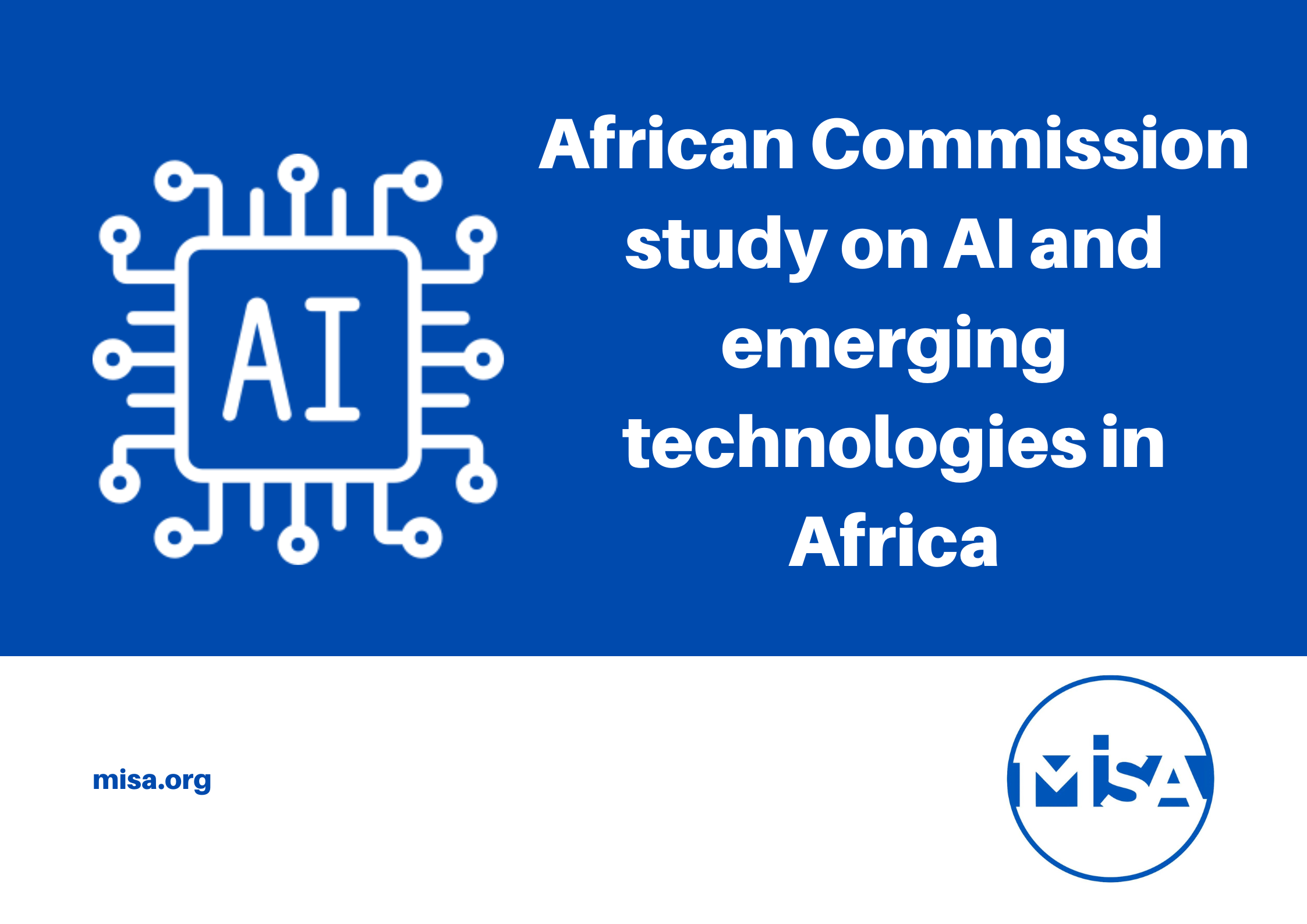Introduction
In February 2021, the African Commission on Human and Peoples’ Rights (ACHPR) adopted Resolution 473 regarding the need to conduct a study on human and peoples’ rights and artificial intelligence (AI), robotics, and other new and emerging technologies in Africa.
The Resolution recognises that AI and emerging technologies present both opportunities and challenges for the promotion and protection of human and peoples’ rights in Africa.
The study provides critical insights into the transformative potential and risks posed by these technologies in advancing or undermining fundamental rights and freedoms across the continent.
It acknowledges technology’s dual impact on African livelihoods, presenting both opportunities and risks across various sectors.
Impact of AI on African livelihoods
AI can drive economic empowerment through optimised supply chains, improved agriculture, and fintech-driven financial inclusion, contributing to poverty reduction and bridging the digital divide.
It can also transform healthcare by improving diagnostics, treatment, and access, especially in remote areas. In education, AI-powered tools can personalise learning and improve employability.
Furthermore, AI can boost emerging sectors, support sustainable development, and enhance governance.
Regulation and risk reduction
However, Africa is a continent that is disproportionately affected by issues such as poverty, climate change, and lack of access to basic services. To realise the potential of AI in accelerating sustainable development, the continent needs strategic investments and supportive policies.
This calls for the development of appropriate policies and regulations for AI governance that safeguard data privacy and ensure ethical use. There is a need for strategic prioritisation of the importance of AI for economic growth and development in national development agendas.
The anticipated regulatory environment necessitates collaboration between governments, industry, and civil society.
AI and fundamental human rights
An examination of current AI applications, such as surveillance systems, facial recognition, and content moderation, have a profound impact on the protection of fundamental rights. These technologies highlight the ethical and legal concerns that arise from AI’s influence on human rights.
AI-driven automation may increase unemployment and economic inequality by displacing low-skilled workers. Algorithmic bias and unrepresentative data can perpetuate discrimination, disproportionately harming marginalised communities.
Privacy and data protection are at risk from AI technologies like invasive surveillance systems and biased decision-making algorithms, which could result in misuse and exploitation.
These also undermine human dignity, leading to dehumanising experiences and violations of fundamental rights such as the right to work, the right to non-discrimination, and the right to freedom of expression.
The digital divide, characterised by limited infrastructure, affordability, and low digital literacy, hinders equitable access to AI, disadvantaging rural and underserved populations.
Energy-intensive AI systems, including data centres, contribute to carbon emissions and environmental degradation. Over-reliance on AI in sectors like education risks undermining African cultural values, traditions, and human interaction as intergenerational knowledge transfer and community-based learning are displaced by technologies.
conclusion
Africa needs policies driven by Africans to regulate emerging technologies that uphold fundamental rights (human dignity, equality and non-discrimination), anchored and protected by relevant African instruments such as the African Charter on Human and Peoples’ Rights.
There is a need to ensure that technological advancements respect these principles through measures that require proactive fairness audits, transparency requirements, and redress mechanisms.
AI has the potential to transform livelihoods. However, its benefits must be distributed equitably. Its risks must be mitigated through robust governance frameworks, human rights-based approaches, and inclusive policies tailored to Africa’s unique context.
MISA Regional Communique









